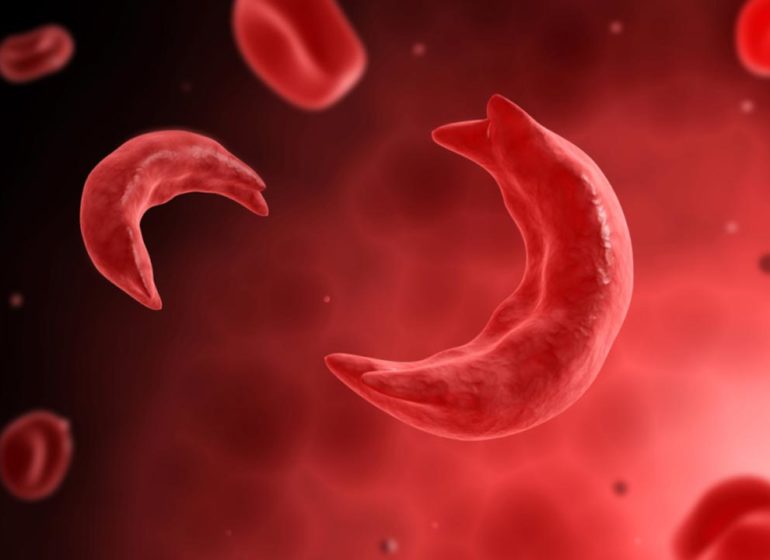Sickle cell disease (SCD) is a group of typically inherited genetic disorders marked by an abnormality in the oxygen-carrying protein of red blood cells.
The disease, when not properly managed, bears potentially devastating consequences for those afflicted — it’s early signs include swelling of the hands and feet; anaemia symptoms; fatigue and jaundice.
Over 300,000 babies are born with the disease annually and an approximated 250 million worldwide carry the gene. 75 percent of all patients with SCD live in Sub-Saharan Africa — Nigeria alone accounting for more than 100,000 new births annually according to CDC.
Asides health complications like delayed growth and severe episodes of pain, SCD could significantly harm the brain, eyes, lungs, heart, kidneys, penis and other organs if poor management persists over the course of a patient’s life.
While proper lifestyle practices have severally proved effective, the accompanying health adversities typical of improperly managed cases have given rise to quite a number of myths.
Here are some of them and what you should know.
SCD as an ancestral curse
No, it’s not. Children suffering SCD are known to repeatedly throw feats and fall sick when not adequately cared for. This has given rise to unfounded speculations that the disease might be connected to the workings of diabolic forces — especially in the African context.
For the record, a child only suffers SCD if they receive such genes from both parents — not when they fall under ancestral spells. Others may possess the sickle cell trait (SCT) by receiving only one of the genes. In cases where both parents have either SCD or SCT, then discussing with a doctor becomes paramount before childbirth.
SCD as a contagious disease
No, it’s not. Although people suffering the disease are mostly known to be somewhat reclusive for obvious reasons, SCD is a genetic condition present at birth and people cannot become infected by persons who have the disease.
SCD is one of the most common genetic disorders across the globe. It is not restricted to the black race and third parties can’t simply contract it.
SCD as an incurable dilemma
Contrary to commonplace assumptions, sickle cell disease can be cured for — some patients. Bone marrow transplant, also known as a stem cell transplant, offers a potential cure for sickle cell anaemia.
There have been reported cases of treated patients. The process involves collecting healthy cells from a donor’s bone marrow and then transferring them into a patient, albeit, it comes with serious risk and is very expensive.
SCD is the same for all patients
No, it’s not. Persons suffering from sickle cell disease share similar symptoms, hence, many are quick to assume that the pathology is the same for them all. Asides from the fact that each patient’s body may react differently to SCD, there are also different types of the disease.
Haemoglobin SS, the commonest, follows when a patient simply inherits copies of the haemoglobin S gene from both parents. Another follows the inheritance of SC as opposed to SS and is marked by a difference in the severity of the accompanying anaemia. So, SCD is not the same for all patients.
SCD patients don’t live long
Talks on how sickle cell patients don’t get to live long and healthy lives are prevalent, especially in underdeveloped or developing countries. On the contrary, people suffering from SCD can indeed live healthy, active and long lives — with proper lifestyle practices.
People with SCD can lower their chances of difficulty by getting regular medical checkups, following up such checkups adequately with the prescribed medications, taking preventive measures against unrelated infections, and practising healthy dietary habits
Copyright 2024 TheCable. All rights reserved. This material, and other digital content on this website, may not be reproduced, published, broadcast, rewritten or redistributed in whole or in part without prior express written permission from TheCable.
Follow us on twitter @Thecablestyle

